Language learning: French and German 'squeezed out' in Scottish schools
- Published
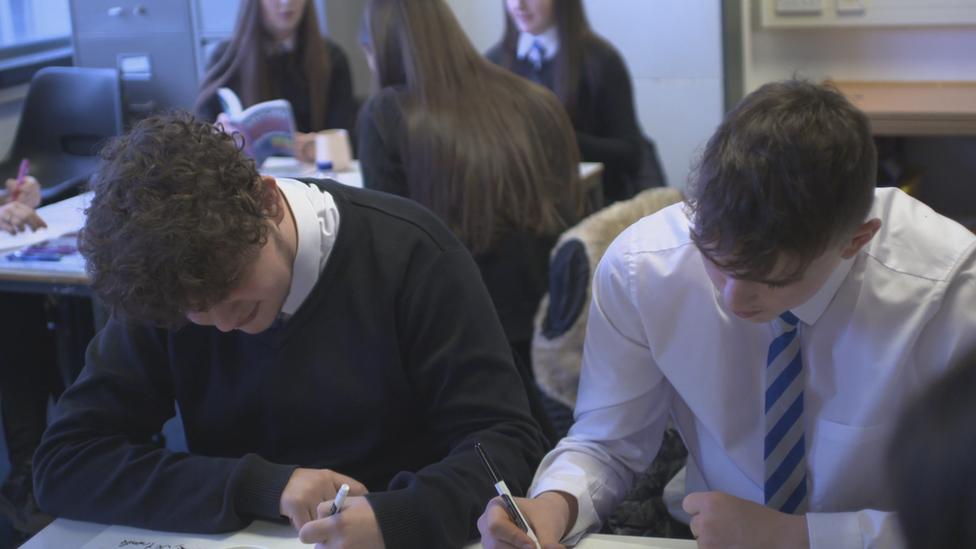
Teaching of modern languages such as French and German has dropped
Foreign language subjects are being squeezed out of many secondary school timetables in Scotland, analysis from BBC Scotland's The Nine can reveal.
More than half of the schools that responded to the BBC said changes to the school curriculum had the biggest impact on language provision.
A major teaching union said they wanted a review of changes to the curriculum.
They said they had concerns about it restricting the range of subjects pupils take in S4.
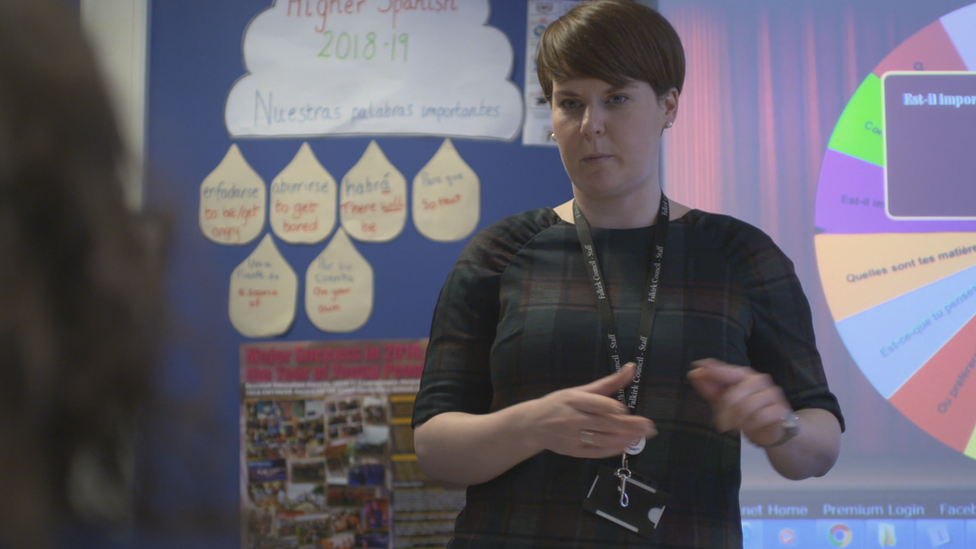
Spanish has gained in popularity as a subject
Seamus Searson, general secretary of the Scottish Secondary Teachers Association (SSTA), said that if youngsters did not come forward for examinations, teachers' jobs became less secure.
"If we are not careful, in many state schools, we'll end up in a situation where languages won't be taught at all," Mr Searson said.
The BBC attempted to contact every state secondary school in Scotland and 167 responded - just under half.
Of the schools responding to The Nine survey:
More than half said in the past five years priority or compulsory subjects within the timetable had an impact on modern language provision
More than half believed modern language exams were considered "too difficult" by pupils
About half said pupils are less interested in studying languages
However, while French and German showed a decline Spanish appeared to be gaining popularity at National 5 and Higher.
Survey respondents noted an increase in provision (23% and 16%) over the past five years.
The Nine survey relates mainly to French, German, Italian and Spanish qualifications.
It found 41% of the Scottish schools that responded had stopped offering one or more of French, Spanish or German at National 5.
There were five council area in Scotland where no National 4 or National 5 exams in German were recorded in 2017/18 - East Dunbartonshire, East Renfrewshire, North Ayrshire, Orkney Islands and Western Isles.
However, East Renfrewshire was top in the whole UK for the percentage of pupils taking French.
Data provided by the SQA (Scottish Qualification Authority) shows National 5 and Higher exams were also taken by pupils in Cantonese, Mandarin, Russian and Urdu.
New qualification system
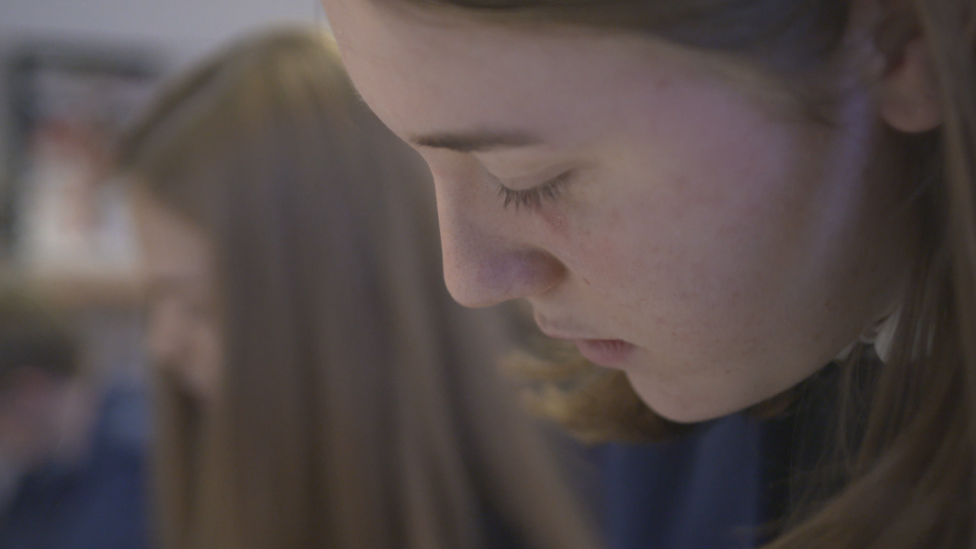
The curriculum changed five years ago
In 2013, a new qualification system was introduced in Scotland.
National 3, National 4 and National 5 courses replaced Standard Grades.
Councils and schools can now decide how many subjects students can do and there is no national standardisation.
Christopher Struth, acting principal head of Modern Languages at Larbert High School, believes a narrowing of subject choice in the school timetable could be leading to fewer pupils in Scotland studying a National level modern language.
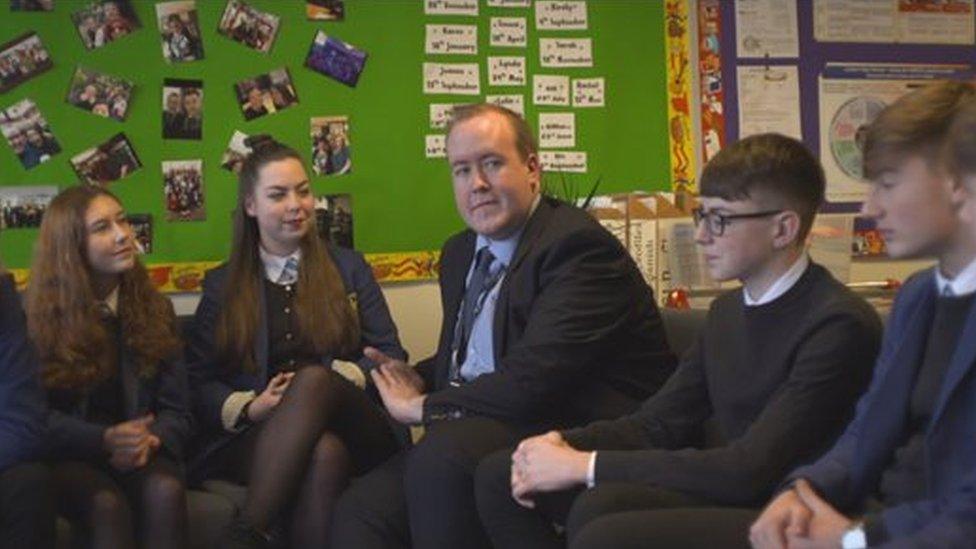
"[Before 2013] when it was Standard Grades, many schools offered seven or eight subjects but now at National 5 level they only do five or six.
"So that means, unfortunately, if some pupils are going to get rid of a subject, it is the language that goes."
Decrease of 19%
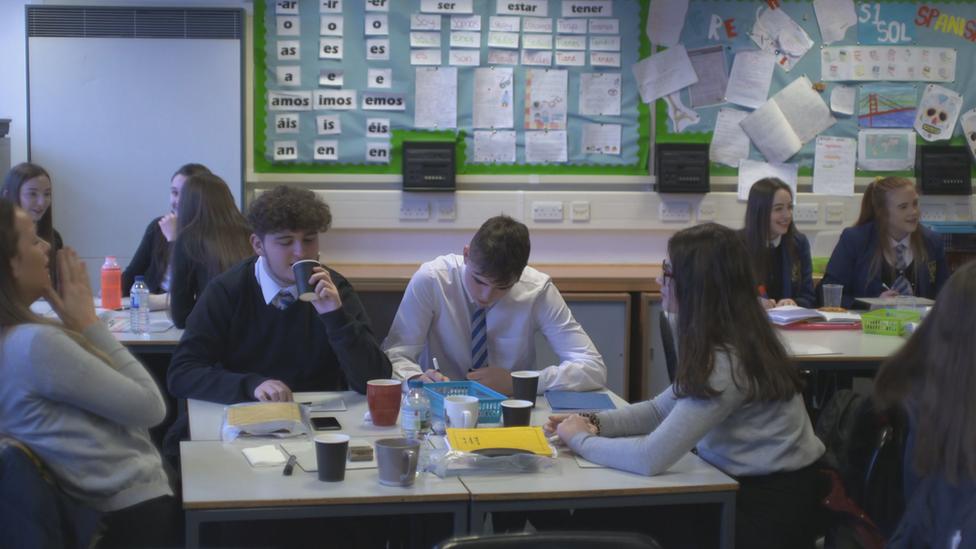
Fewer students are taking National 5 qualification in languages
Figures from the SQA show the number of people obtaining National 4 and 5 level qualifications in a modern language in 2013-14 was more than 21,800.
By 2017-18, it had fallen to 17,800 pupils at National 4 and 5 level, marking a decrease of 19%.
It is important to note, however, that some students are bypassing National 5s completely and working for two years towards their Highers.
Moreover, the number of people obtaining a Higher in a modern language has been broadly stable in recent years, with more than 6,300 entries in 2013-14 and about 6,700 in 2017-18 according to SQA data.
More time for learning
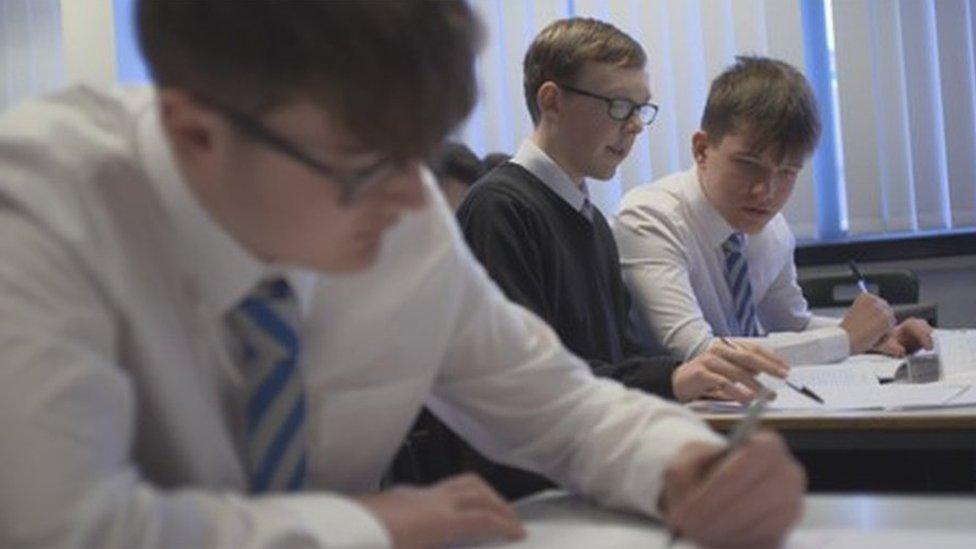
A Scottish government spokeswoman said studying for fewer qualifications means more time for learning and teaching in the subjects that are being studied.
"It also means more time for studying for awards other than 'traditional' national qualifications and young people are now gaining a broader range of qualifications," the spokeswoman added.
The Scottish government also pointed to an additional £27.2m it has made available since 2013 to assist local authorities with implementation of the 1+2 language policy.
It allows young Scots the opportunity to learn a modern language from Primary 1 until the end of third year and an additional modern language from Primary 5 onwards.
It is an approach which Mr Struth believes pupils at Larbert High School have benefited from.
"There's a lot of enthusiasm in primary schools. It starts there."
Less choice to be investigated
The Holyrood Education and Skills committee is currently investigating whether subject choices are being restricted in secondary schools.
Labour MSP Johann Lamont, who is a former teacher and deputy convener of the committee, said there is a "general concern young people are limited in the range of subjects offered".
She told BBC Scotland a "restriction" in the amount of subjects that a third or fourth year pupil can take, and the "availability" of modern language teachers, could be affecting provision.
Ms Lamont also questioned whether modern languages are being valued by young people, and whether they believe the subject is still "relevant".